Last week, Amazon released a short list of 20 cities for its HQ2. Syracuse, New York, wasn’t on the list. While not surprising to those of us who worked on the bid, it was nevertheless disappointing. The impact that a project of this scale would have created in a mid-sized market would have been extraordinary. The promised 50,000 jobs represents 15 percent of our metropolitan employment and would have brought our total metro job count to its highest level.
Like the other 237 communities that submitted proposals, our effort started with a team of stakeholders developing a list of assets that would distinguish us from our competition. At the top of the list were: our state and regional investments in the Unmanned Aerial Systems industry and low cost business operations that could have saved Amazon as much as $23 billion over 20 years, compared to its current costs in Seattle.
Yet we hoped a different aspect of our proposal would have resonated with Amazon’s site selection team: our unvarnished honesty about the community that Syracuse is, and the Syracuse that we want it to be.
What we submitted went far beyond a traditional site selection package. Yes, it outlined a bold vision to attract a company looking to break new ground and deploy innovative future-leading operations. Yes, it outlined an aggressive talent development and attraction strategy anchored on our region’s (nearly 200,000) college and graduate students. Yes, it included some of our region’s prime urban real-estate. But more importantly, it also pointed to the opportunity for Amazon to disrupt one of the greatest challenges facing our region: its considerable racial and socio-economic disparities.
It is no secret that Syracuse and Central New York have some of the highest rates of concentrated poverty in the United States, particularly within black and Latino communities. In the city of Syracuse, 32 percent of people live below the poverty line. What’s worse is the fact that in Syracuse, one in two children live in poverty. Unfortunately, Syracuse is far from alone when it comes to seeing increasing rates of poverty and economic disparity at a regional level.
Unfortunately, Syracuse is far from alone when it comes to seeing increasing rates of poverty and economic disparity at a regional level. Rather than hide this fact amidst glossy pages and pretty pictures, we embraced it.
Rather than hide this fact amidst glossy pages and pretty pictures, we embraced it. We led a major regional business attraction pitch with the cold, hard facts. We did so for the simple reason that we cannot confront what we are afraid to say out loud – that economic inequality in our region and across the United States is not just a social and moral challenge, it is an economic problem that demands an economic solution.
After all, Amazon is one of the great market disruptors in all of history, having reinvented bookselling, retail, distribution, film production, unmanned systems, and the grocery business, to name just a few. And it was Amazon CEO Jeff Bezos who expressed interest in opportunities for HQ2 to be at the “intersection of urgent need and lasting impact.” By coming to Syracuse, or any other mid-sized market, Amazon could have disrupted the site-selection industry and, as a result, broken new ground in bridging the divide between concentrated poverty and concentrated wealth.
As a business leadership organization, CenterState CEO and our partners in local government and civic life chose the Amazon HQ2 opportunity to reaffirm our values and accept the responsibility for our role in changing the dynamics of our economy. And we do this by acknowledging that while economic growth is a necessary pre-condition to improving the economic condition of the most disadvantaged, that growth alone does not necessarily translate into economic opportunity or shared prosperity for all.
That requires intentionality.
If those in business and the field of economic development are to remain relevant in an increasingly divided socio-economic environment, we must be active leaders and willing partners in connecting the dots between economic growth and shared opportunity. This requires the intentional design of programs, policies and systems to ensure that residents from vulnerable communities have access to jobs.
As economic and community development professionals, the Amazon HQ2 opportunity was such an interesting and compelling project because of the sheer size and scale of its potential impact. The word ‘transformative’ is thrown around so often, but in this case, for a community like ours and hundreds of other mid-sized markets, the entire economic fortune of a region or state could have been changed overnight.
The exercise of competing forced us to think even bigger, beyond our region, to consider the changes that are needed in our economic system.
In fairness, Amazon was never likely to select Syracuse. Nonetheless, the exercise of competing forced us to think even bigger, beyond our region, to consider the changes that are needed in our economic system if we are to meaningfully address the deepening economic divide that is plaguing America.
All eyes now shift to the 20 communities that remain in the running. What level of creativity can they muster, not just on the immediate site selection needs of a tech giant, but to the broader questions facing our field and society? How will they make urban planning decisions to ensure low-income residents have access to jobs? How will they address issues of affordable housing at the front-end of a major campus development, as opposed to after the fact when it’s generally too late? And how will they reimagine public transportation and other critical services like child-care that have often served as barriers between lower-income communities and work?
Market disruptors like Amazon are needed to lead the re-engineering of our economic development practices to ensure they are intentionally inclusive. To any company with the courage to tackle that problem, we have just the place, and the partners, for you.
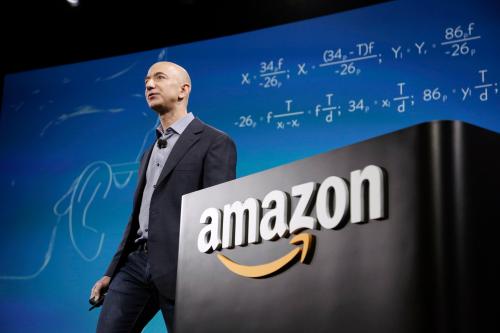
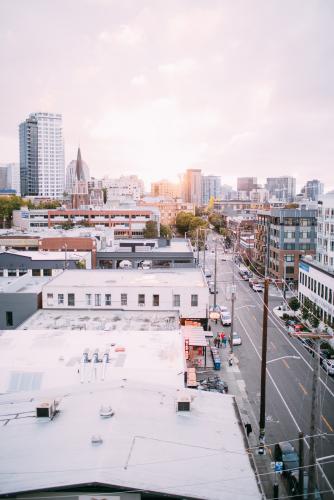
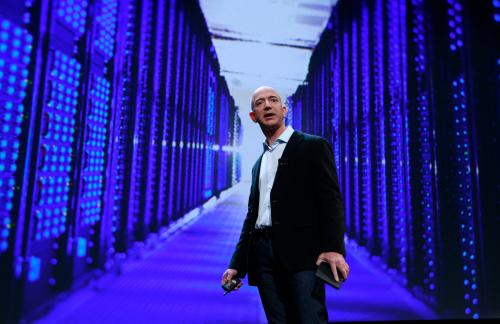
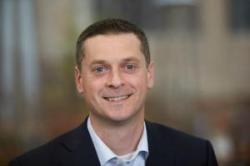
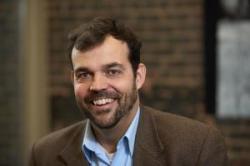
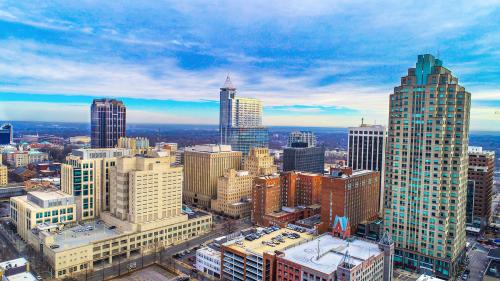
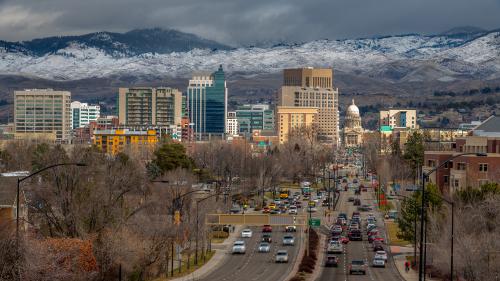
Commentary
Amazon’s HQ2 is an opportunity to disrupt national narrative on economic disparity
January 24, 2018